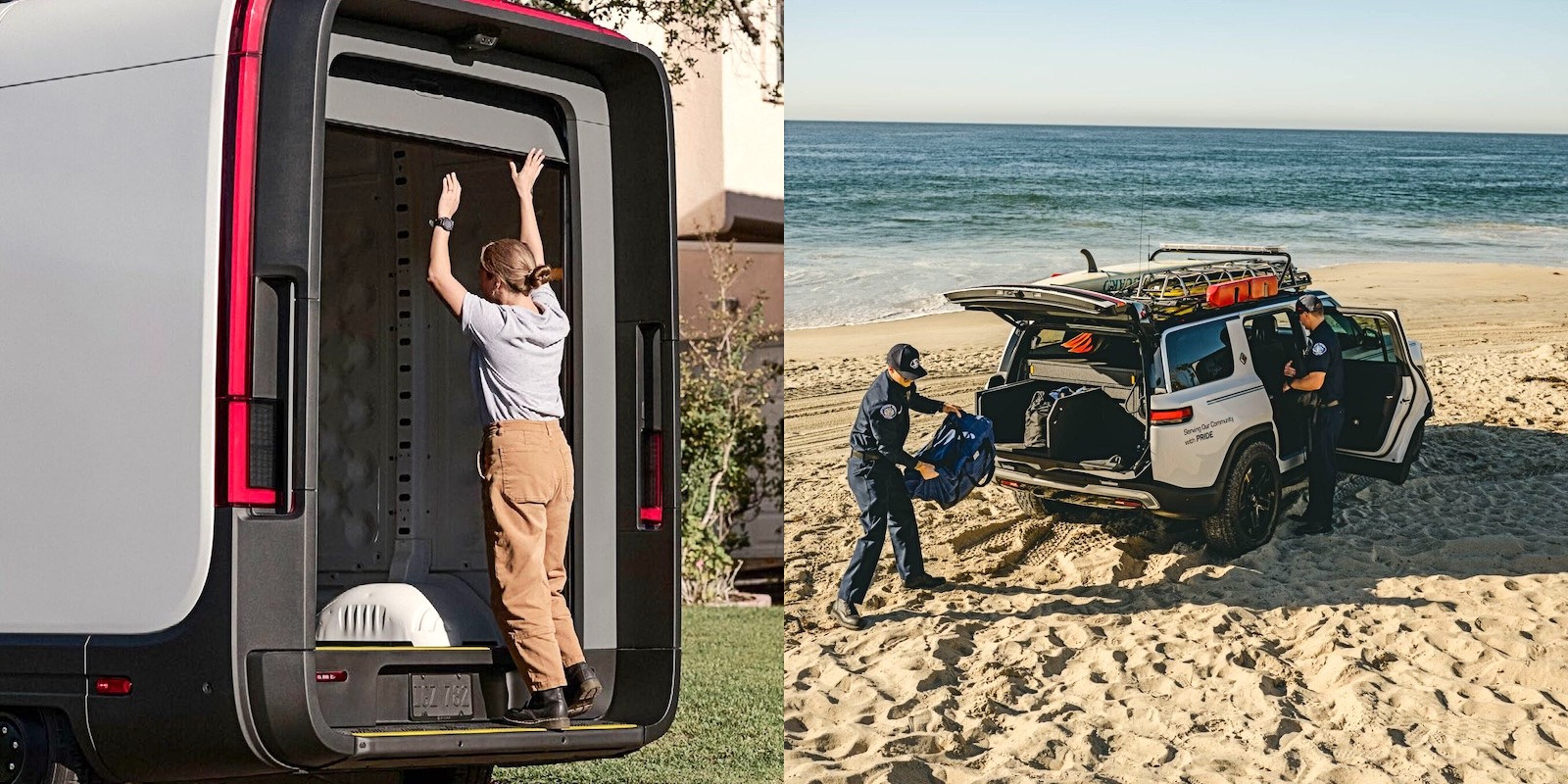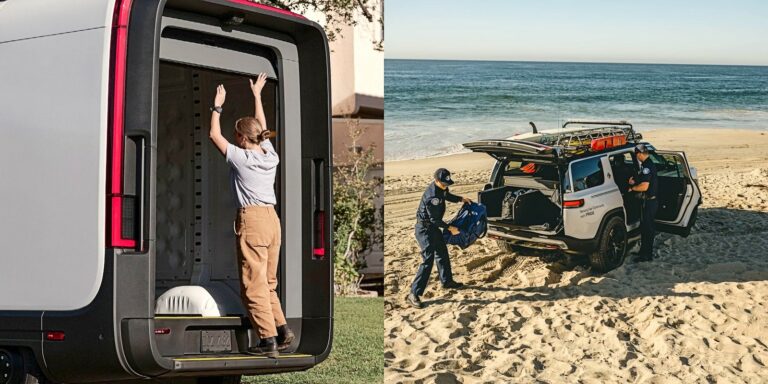Rivian Announces Upfit Program for Commercial EV Fleets
Following quickly after Rivian’s announcement of making its electric delivery vans available to individual buyers, the company launched the Rivian Upfit Program. This program is designed as a “one-stop shop” to assist fleet managers in integrating Rivian’s EVs into their operations.
Rivian has partnered with industry leaders in commercial vehicle customization, including Ranger Design, Sortimo of North America, Bush Specialty Vehicles, Holman, LEGEND, and EV Sportline. The Rivian Upfit Program aims to simplify the ordering process. It intends to replicate the streamlined experience fleet managers are accustomed to at traditional dealerships, facilitating a smoother transition to electric vehicles for their business needs.
Despite these strategic partnerships and entry into a well-established market, the program’s website seems to cater to individuals outside the industry. The website begins with an explanation of upfitting:
Upfitting is the process of customizing a vehicle to meet fleet, business, or individual consumer needs to tackle the job at hand. This work is done after the vehicle has been built and released from the factory, and can include everything from shelving modifications, flooring options, to sirens and flashers and much more.

The program was initially announced on LinkedIn, accompanied by several images showcasing upfit options for Rivian’s R1T and R1S models. These configurations focused on applications such as lifeguard and roadside assistance, and Rivian’s van upfitted with a HVAC/telecom style toolbox arrangement.
Note: Details regarding pricing and turnaround times for the program were not disclosed at the time of the announcement.
Electrek’s Take
Here’s the general consensus:
The general viewpoint at the Electrek offices is that the direct-to-consumer approach, as implemented by companies like Rivian, Tesla, and even CarMax, offers an improved customer experience. However, the author expresses a contrasting opinion, having previously supported the traditional franchise dealer model. The author feels competitive dealer landscapes tend to give consumers a better deal in the long run. The author goes on to explain that the competitiveness in established markets enables talented fleet managers at franchise dealerships to understand the region’s local markets and business needs, anticipate which upfit options make the most sense, and maintain appropriate inventory for quick service.
The author voices concerns that Rivian’s approach might be too simplistic. The author suggests that building relationships is more complex than building cars. The author feels Rivian’s initial messaging may not give a good first impression but it the author admits they could be mistaken.
What do you think?
Source: Rivian, via LinkedIn.



